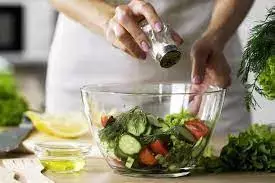- Home
- Medical news & Guidelines
- Anesthesiology
- Cardiology and CTVS
- Critical Care
- Dentistry
- Dermatology
- Diabetes and Endocrinology
- ENT
- Gastroenterology
- Medicine
- Nephrology
- Neurology
- Obstretics-Gynaecology
- Oncology
- Ophthalmology
- Orthopaedics
- Pediatrics-Neonatology
- Psychiatry
- Pulmonology
- Radiology
- Surgery
- Urology
- Laboratory Medicine
- Diet
- Nursing
- Paramedical
- Physiotherapy
- Health news
- Fact Check
- Bone Health Fact Check
- Brain Health Fact Check
- Cancer Related Fact Check
- Child Care Fact Check
- Dental and oral health fact check
- Diabetes and metabolic health fact check
- Diet and Nutrition Fact Check
- Eye and ENT Care Fact Check
- Fitness fact check
- Gut health fact check
- Heart health fact check
- Kidney health fact check
- Medical education fact check
- Men's health fact check
- Respiratory fact check
- Skin and hair care fact check
- Vaccine and Immunization fact check
- Women's health fact check
- AYUSH
- State News
- Andaman and Nicobar Islands
- Andhra Pradesh
- Arunachal Pradesh
- Assam
- Bihar
- Chandigarh
- Chattisgarh
- Dadra and Nagar Haveli
- Daman and Diu
- Delhi
- Goa
- Gujarat
- Haryana
- Himachal Pradesh
- Jammu & Kashmir
- Jharkhand
- Karnataka
- Kerala
- Ladakh
- Lakshadweep
- Madhya Pradesh
- Maharashtra
- Manipur
- Meghalaya
- Mizoram
- Nagaland
- Odisha
- Puducherry
- Punjab
- Rajasthan
- Sikkim
- Tamil Nadu
- Telangana
- Tripura
- Uttar Pradesh
- Uttrakhand
- West Bengal
- Medical Education
- Industry
Regularly adding table salt to food could increase risk for gastric cancer, suggests new research

Regularly adding table salt to food could increase the risk for gastric cancer, suggests new research published in Gastric Cancer.
While dietary salt intake has been linked with gastric cancer risk in Asian studies, findings from Western populations are sparse and limited to case-control studies. The aim was to evaluate the frequency of adding salt to food at the table in relation to gastric cancer risk among UK adults. They evaluated associations between the frequency of adding salt to food and the risk of gastric cancer in the UK Biobank (N = 471,144) using multivariable Cox regression. The frequency of adding salt to food was obtained from a touchscreen questionnaire completed at baseline (2006–2010). 24-hour urinary sodium excretion was estimated using INTERSALT formulae. Cancer incidence was obtained by linkage to national cancer registries.
Results: During a median follow-up period of 10.9 years, 640 gastric cancer cases were recorded. In multivariable models, the gastric cancer risk among participants reporting adding salt to food at the table “always” compared to those who responded “never/rarely” was HR = 1.41 (95% CI: 1.04, 1.90). There was a positive linear association between estimated 24-hour urinary sodium levels and the frequency of adding salt to food (p-trend <0 .001). However, no significant association between estimated 24-h urinary sodium with gastric cancer was observed (HR = 1.19 (95% CI: 0.87, 1.61)). “Always adding salt to food” at table was associated with a higher gastric cancer risk in a large sample of UK adults. High frequency of adding salt to food at table can potentially serve as a useful indicator of salt intake for surveillance purposes and a basis for devising easy-to-understand public health messages.
Reference:
Kronsteiner-Gicevic, S., Thompson, A.S., Gaggl, M. et al. Adding salt to food at table as an indicator of gastric cancer risk among adults: a prospective study. Gastric Cancer (2024). https://doi.org/10.1007/s10120-024-01502-9
Dr. Shravani Dali has completed her BDS from Pravara institute of medical sciences, loni. Following which she extensively worked in the healthcare sector for 2+ years. She has been actively involved in writing blogs in field of health and wellness. Currently she is pursuing her Masters of public health-health administration from Tata institute of social sciences. She can be contacted at editorial@medicaldialogues.in.
Dr Kamal Kant Kohli-MBBS, DTCD- a chest specialist with more than 30 years of practice and a flair for writing clinical articles, Dr Kamal Kant Kohli joined Medical Dialogues as a Chief Editor of Medical News. Besides writing articles, as an editor, he proofreads and verifies all the medical content published on Medical Dialogues including those coming from journals, studies,medical conferences,guidelines etc. Email: drkohli@medicaldialogues.in. Contact no. 011-43720751


